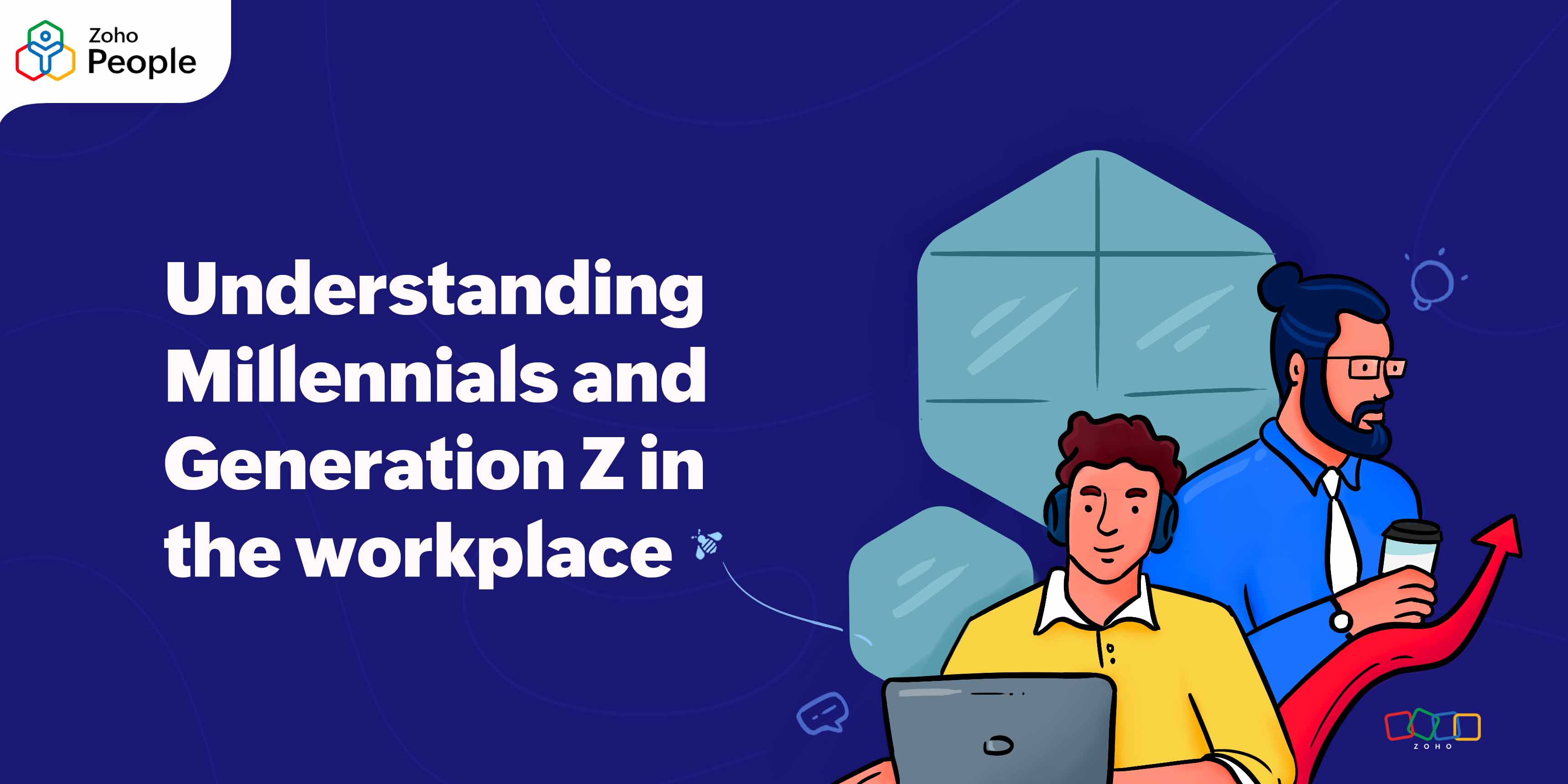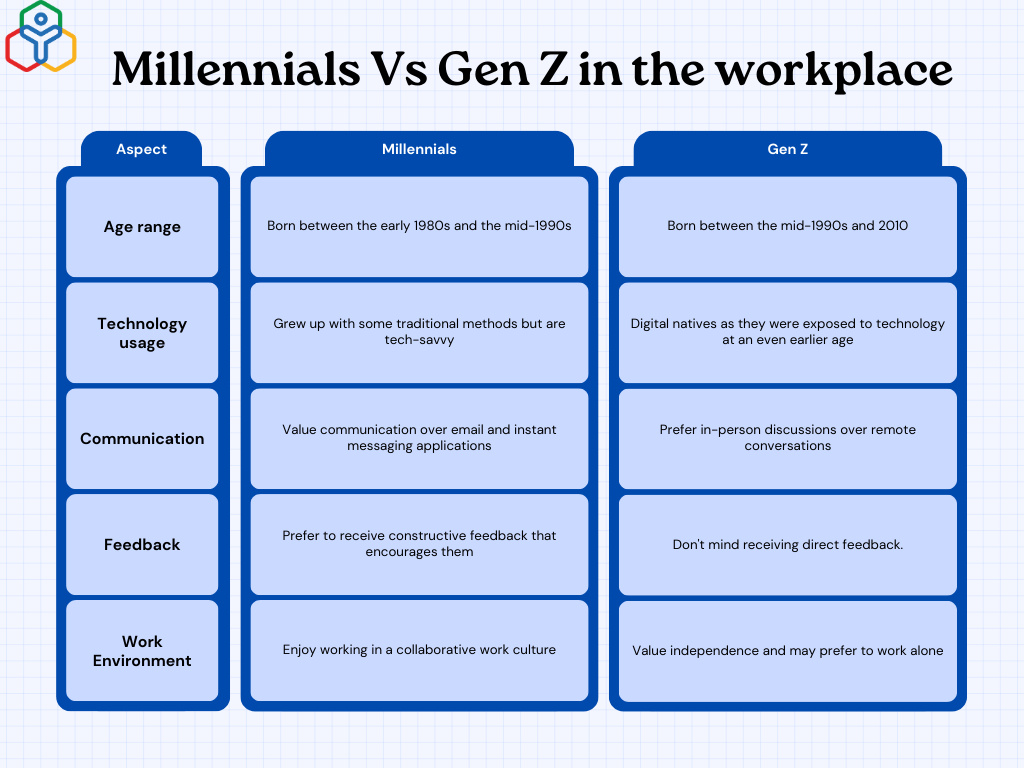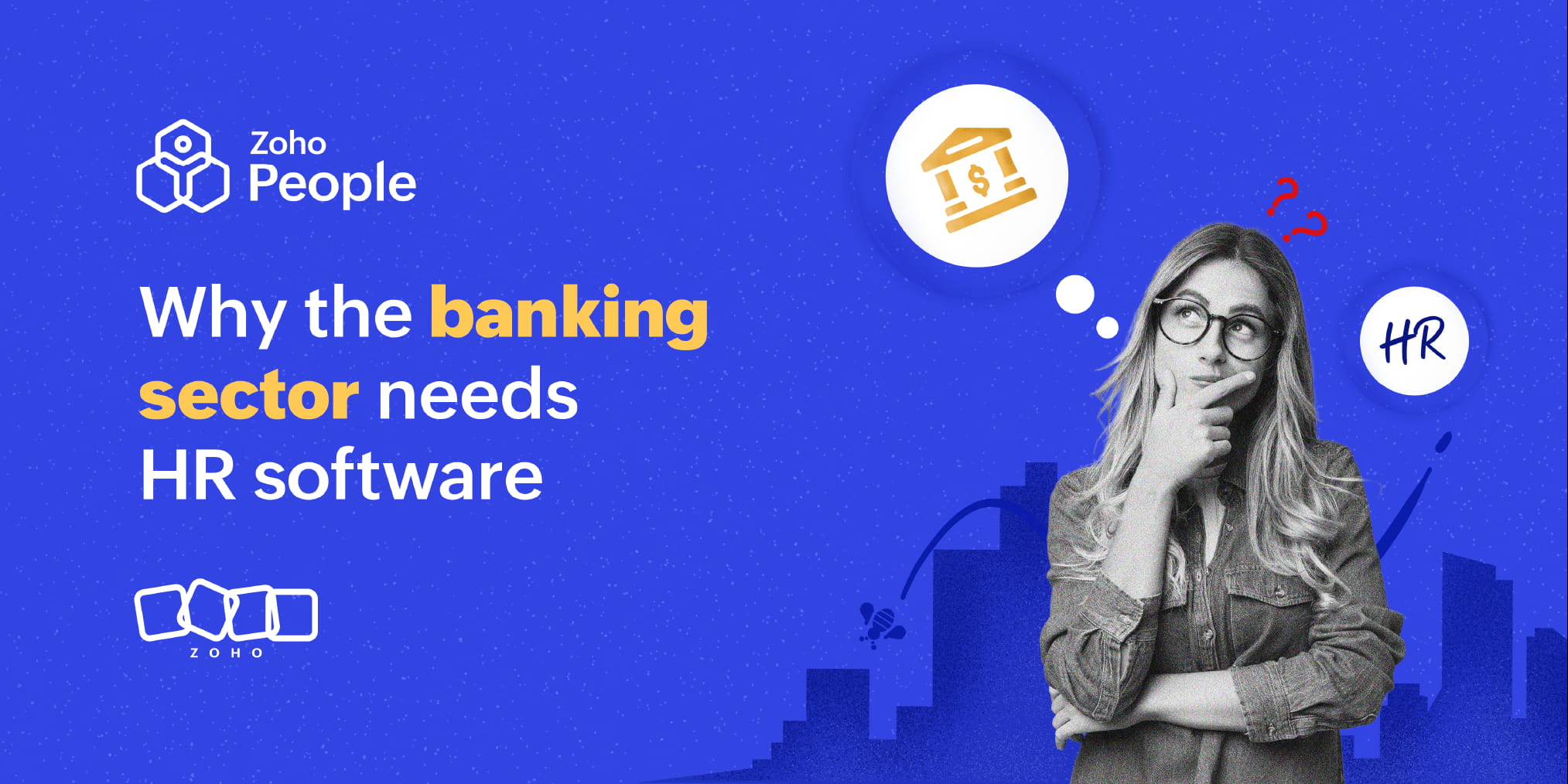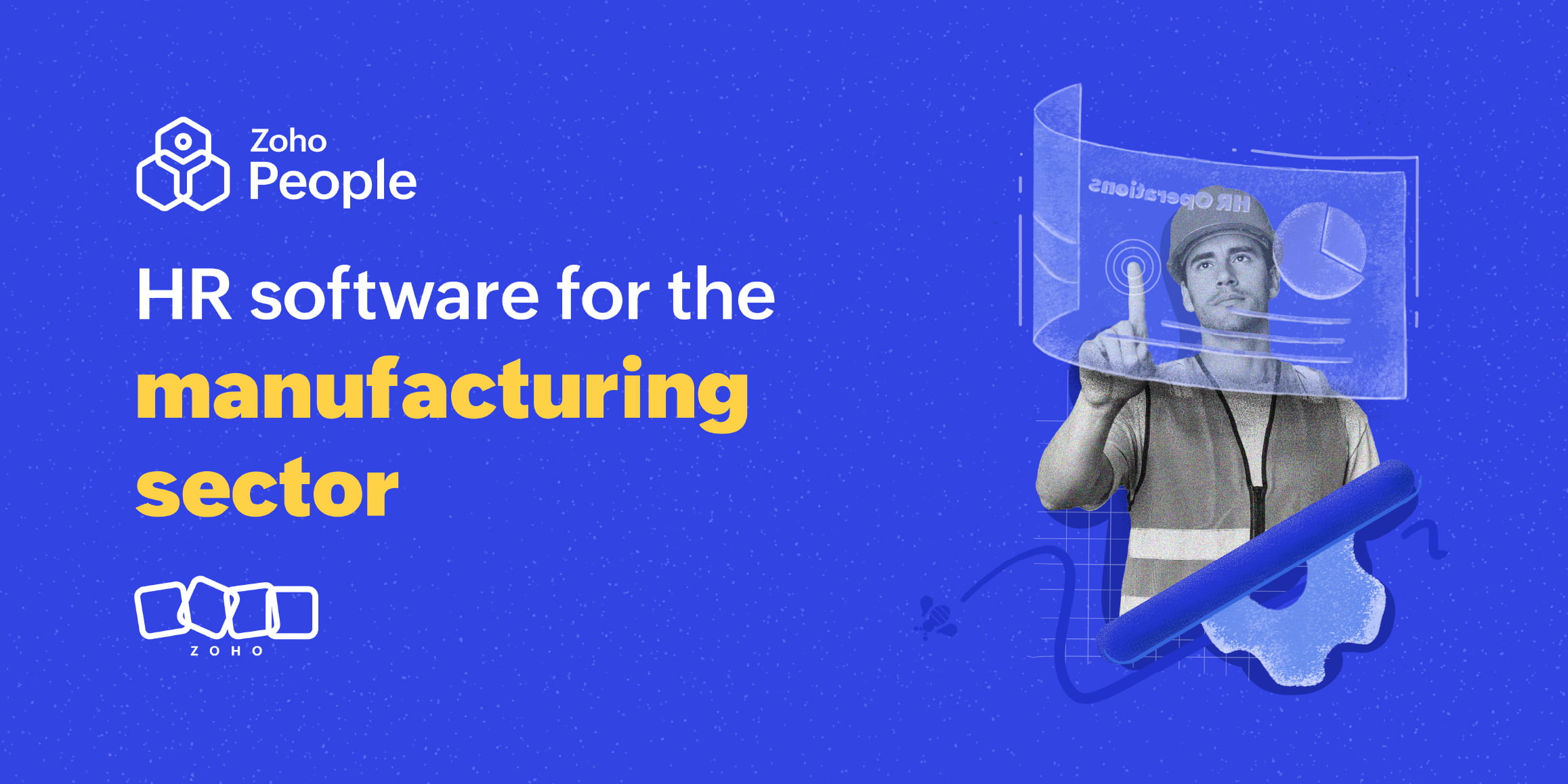- HOME
- HR insights
- Understanding Millennials and Generation Z in the workplace
Understanding Millennials and Generation Z in the workplace
- Last Updated : January 24, 2025
- 9.2K Views
- 6 Min Read

Millennial and Gen Z employees have become a large part of today's workplace. According to PwC, these two generations make up about 38% of the total workforce, and this figure is expected to rise to 58% by 2030. Individually, Forbes predicts that Millennials will constitute about 75% of the workforce by 2025, and Gen Z employees will be about 27%.
What sets employees from these generations apart is their expectations around workplace flexibility and collaboration. They've helped transform the world of work, all for good reasons. Organizations sticking to traditional management strategies—like micromanagement and strict rules—may not be able to sustain in the long term.
Let's review everything HR teams should know about managing millennials and Generation Z in the workplace.
Overview of Millennials and Generation Z
Understanding the characteristics of Millennials
Millennials, also referred to as Generation Y, are people who were born between the early 1980s and the mid-1990s. They are one of the very first generations to grow up with technology advancements, and are often seen as tech-savvy, highly educated, collaborative, and socially conscious. At work, they value work-life balance, continuous learning, career advancement, and purpose-driven endeavors.
Understanding the characteristics of Gen Z
People born between the mid-1990s and 2010 are called Generation Z. This generation was exposed to technology at an even earlier age, and completes most day-to-day activities (including shopping, reading, and working) online. People in this generation are considered to be extremely realistic in how they approach life and work, and they find joy in embracing individualism.
Understanding their expectations in a workplace
Staying on top of Millennial and Gen Z expectations in the workplace can help your organization devise better management strategies.
Meaningful work
Unlike their peers from the previous generations, who took pride in being associated with bigger firms and holding higher positions, Millennials and Gen Z employees find satisfaction in purposeful work. In general, they look to contribute to a larger cause that has a positive impact on society, and they want to be associated with organizations whose values, purpose, and missions align well with their own. Gender equality, diversity, anti-discrimination, and inclusion are some values this generation of workers exhibit, and they expect their organization to uphold the same ideals.
Career advancement
Millennial and Gen Z employees don't want to be stuck in dead-end jobs. They embrace continuous learning and look to gain skills that help them prepare for the future of work. Being at an organization that invests in their skills and development makes them feel valued.
Work-life balance
Unlike baby boomers, who put their work and professional lives before their personal lives, both millennials and Gen Z employees want to work without compromising their personal lives and family time. They want to be associated with organizations that uphold flexible schedules like remote work, compressed work weeks, and flexible working hours. This doesn't mean that they want to work less, but that they want to enjoy the best of both worlds without giving up one for the other.
Technology integration
Having grown up in the era of rapid technological advancement, millennial and Gen Z employees expect to use intuitive tech tools that cut down repetitive tasks and make their work more efficient. They value automation and want to make use of collaborative technology that helps them stay connected with their peers. In addition to this, they appreciate the convenience of mobile applications that help them work on the go.
Leadership style
Millennial and Gen Z employees are no fans of command-and-control leadership. They don't perform well when micromanaged and prefer to give their input rather than just be told what to do. These two groups of employees expect their leaders to adopt an employee-centric culture that puts them before profits. They appreciate workplace mentorship that pairs the ability to innovate with growth-oriented feedback.
Feedback and recognition
Millennial and Gen Z employees are motivated by constructive feedback and consistent recognition. They also believe that feedback is a two-way street and expect their organization to take feedback from them too. They want to understand how their work contributes to the greater cause. Traditional annual performance reviews are less effective for these generations.
What are the key differences in the expectations of millennial and Gen Z employees?

Here are some of the key differences in how millennial and Gen Z employees approach their work-life:
Even though Gen Z is considered to be digital natives, they prefer in-person discussions over remote conversations, whereas their peers from the previous generation value communication over email and instant messaging applications.
Millennials enjoy working in a collaborative work culture, where they are encouraged to brainstorm new ideas, exchange feedback, and share work, whereas Gen Z employees value independence and may prefer to work alone.
While both generations value feedback, millennials prefer to receive constructive feedback that encourages them, while Gen Z employees don't mind receiving direct feedback.
Gen Z employees tend to be more privacy-conscious than millennial employees since they grew up with the internet.
Five different ways to attract and retain millennial and Gen Z workers
Now that we've explored what millennial and Gen Z employees expect from their workplace, here are five different ways in which organizations can attract and retain these two generations:
1. Uphold your values and culture
Since culture and value alignment is extremely important for millennial and Gen Z employees, there are high chances that they'll choose to be a part of your organization based on this reason alone. In order to retain them, you must ensure that each aspect of your employee management strategy stays consistent with how you project your organization's principles. For instance, if diversity is one of your core values, it's essential that you hire candidates from different backgrounds, respect their individuality, encourage collaboration among them, and create an inclusive work environment.
Offer greater flexibility
Millennial and Gen Z employees prefer to have flexibility at their work to strike a better work-life balance. According to Deloitte, over 54% of Gen Z employees and 59% of millennial employees feel that hybrid work is good for their mental well-being. So, it's essential that your organization gives up rigid schedules in exchange for flexible schedule options like remote work, hybrid work, flexible working hours, compressed work weeks, flexible time off, and floating holidays. Choose an option that works well for your organization. Check out this blog post to understand the top five tips for adopting a flexible work culture.
Build a culture of continuous learning
Since millennial and Gen Z employees value growth and career development, your organization needs to build a culture of continuous learning. Get feedback from them regularly on what skills they wish to acquire, and conduct a skill gap analysis to organize meaningful training programs. Millennial and Gen Z employees prefer personalization, so let them choose from an array of different training programs and select among self-paced, blended, and instructor-led learning styles.
Be regular with performance reviews
Adopting continuous performance reviews can be instrumental in attracting and retaining employees from these generations. Make it a point to conduct performance reviews once a month or every three months. Appreciate employees for all their good work and provide constructive feedback to help them overcome their weaknesses. This action can also help your organization construct training programs that match the skill needs of your employees. Remember to ask for employee feedback during performance reviews as well.
Adopt intuitive tech tools
As digital natives, millennial and Gen Z employees expect their organizations to provide high-quality HR software solution. Be sure to equip them with the latest and most intuitive tech tools that automate and facilitate operations, right from the time they are hired to the time they exit your organization. Integrate AI technology so that your employees can have digital assistants to simplify routine tasks, suggest training courses, retrieve information they are looking for, schedule meetings, and complete other tasks that improve their productivity. Similarly, adopt online communication tools that keep your entire workforce together, no matter where they work from.
Wrapping up
Millennial and Gen Z employees will soon make up most of the workforce, so it's important to understand and cater to their expectations. We hope this blog post gave you a better idea about their general characteristics, key expectations, and different strategies to attract and retain them at your workplace.
 Tarika
TarikaContent Specialist at Zoho People


